-
Alan R Cohen, M.D.
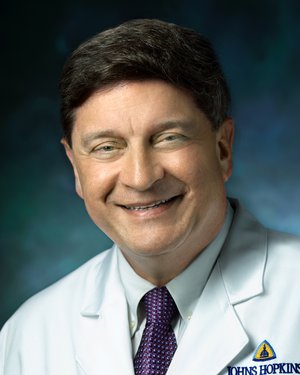
- Director, Johns Hopkins Pediatric Neurosurgery
- Carson-Spiro Professor of Pediatric Neurosurgery
- Director, Neurosurgery Medical Student Education
- Professor of Neurosurgery
- Professor of Oncology
- Professor of Pediatrics
-
Mari Groves, M.D.
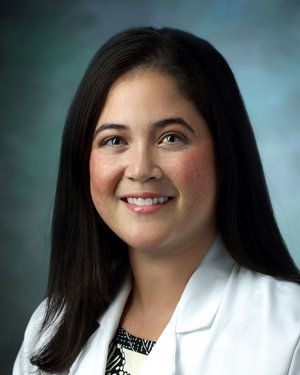
- Assistant Director, Neurosurgery Residency Program
- Associate Professor of Neurosurgery
-
Judy Huang, M.D.
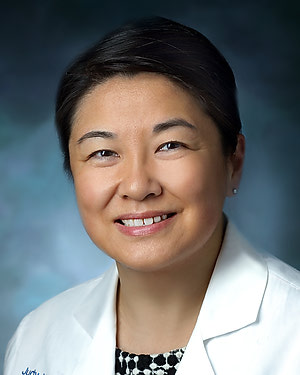
- Vice Chair, Neurosurgery, Johns Hopkins University School of Medicine
- Irving J. and Florence Sherman Professor in Neurosurgery
- Director, Neurosurgery Residency Program
- Director, Department of Neurosurgery, Johns Hopkins Bayview Medical Center
- Director, Cerebrovascular Neurosurgery, Johns Hopkins Bayview Medical Center
- Director, Cerebrovascular Neurosurgery Fellowship Program
- Co-Director, Trigeminal Neuralgia Center
- Co-Director, Chiari Center
- Co-Director, Multidisciplinary Adult Cranioplasty Center
- Co-Director, Fellowship in Neuroplastic Surgery
- Professor of Neurosurgery
-
Daniel Lubelski, M.D.
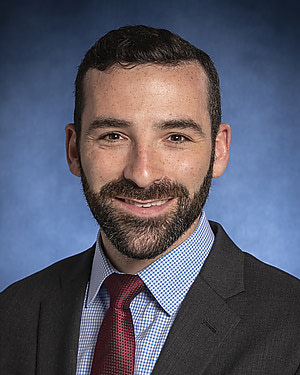
- Director of Spine Tumor Surgery, Department of Neurosurgery
- Assistant Director, Neurosurgery Residency Program
- Assistant Professor of Neurosurgery
- Assistant Professor of Oncology
-
Raj Mukherjee, M.D., M.P.H.
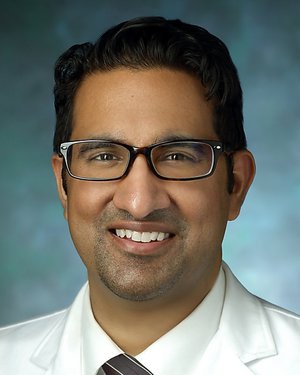
- Director of Neurosurgical Oncology, Johns Hopkins Bayview Medical Center
- Assistant Program Director, Neurosurgery Residency Program
- Associate Professor of Neurosurgery
- Assistant Professor of Radiation Oncology and Molecular Radiation Sciences
- Associate Professor of Oncology
- Associate Professor of Otolaryngology - Head and Neck Surgery
-
Risheng Xu, M.D., Ph.D., A.M.
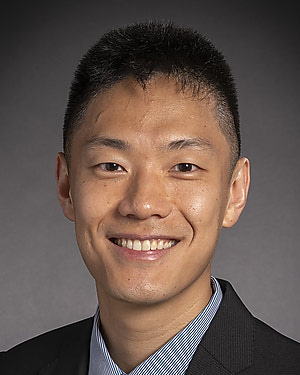
- Assistant Director, Neurosurgery Residency Program
- Assistant Professor of Neurosurgery
Medical Student Electives in Neurosurgery
The Johns Hopkins Department of Neurosurgery offers sub-internship and clinical elective opportunities to medical students.
On this page: How to Apply | Rotations | Conferences | What to Expect | Leadership
How to Apply
If you are a U.S. medical student planning to enter the Neurosurgery 2025 match and would like to be considered for a sub-internship in Neurosurgery for a 2024 summer/fall block, you should follow the following process:
- Fill out a preliminary application online. There is no fee to apply. You will be asked to submit:
- CV
- One letter of recommendation (emailed separately by the recommender)
- Preferred 4-week rotation timeframe (Rotation blocks follow the JHMI Academic Calendar; alternate blocks will be considered upon request.)
- After you receive a preliminary acceptance notification, you will receive instructions to apply through the Johns Hopkins University School of Medicine Registrar's Office.
If you have any questions, please email Colleen Hickson ([email protected]), Department of Neurosurgery Medical Training Programs Administrator.
You will receive email confirmation once all your preliminary application materials have been received. The first round of acceptance emails will be sent in mid-February. Applications will be accepted as long as spots remain, meaning the application window may close early or extend. Timely and full completion of the application through the Registrar’s Office after preliminary acceptance is important.
Completion of a visiting sub-internship is not required to match in our neurosurgery residency program. Many of our current residents did not complete a visiting elective rotation with us. Completion of a visiting sub-internship does not automatically lead to a residency interview, as we are often able to interview sub-interns within your month-long rotation.
Learn more about the visiting medical student program.
International Applicants
International applicants from schools with which Johns Hopkins University School of Medicine has a formal affiliation are welcome to apply for rotations during the months of October through April. These applications are accepted on a rolling basis no sooner than 6 months prior to a desired block.
Rotations
Our neurosurgical faculty perform more than 5,700 neurosurgical operations annually at two campuses:
- There are four adult services at The Johns Hopkins Hospital: “Dandy,” “Cushing”, “Walker”, and “Brem,” each comprised of attendings from the tumor, spine, vascular and functional services. Each of these services is led by a chief resident and a junior resident. Meet our current residents.
- The pediatric neurosurgery service is based at the Johns Hopkins Children’s Center on The Johns Hopkins Hospital campus.
- Visiting medical students may also rotate at The Johns Hopkins Bayview Medical Center campus located two miles from The Johns Hopkins Hospital. There is a convenient shuttle between the two campuses.
Rotations are typically four weeks long (each week spent on a different service) to ensure students receive an optimal neurosurgical experience. Visiting medical students participate in conferences, rounds, operating rooms, and outpatient clinics as part of each service.
Rotation Goals
Sub-interns will present a 5-10 minute talk at Grand Rounds during their rotation.
- Cerebrovascular Surgery: Demonstrate an understanding of the anatomy, physiology, pathophysiology and presentation of cerebrovascular diseases, including ischemic and hemorrhagic stroke, and other diseases and malformations of intracranial, extracranial, and spinal vasculature.
- Neurosurgical Oncology: Demonstrate an understanding of the anatomy, physiology, pathophysiology, and presentation of tumor-related diseases of the cranium.
- Pediatric Neurosurgery: Demonstrate an understanding of the anatomy, physiology, pathophysiology, and presentation of diseases in children which a neurosurgeon may be called upon to diagnose and treat.
- Spinal Surgery: Demonstrate an understanding of the anatomy, physiology, pathophysiology, and presentation of disorders of the spine, its connecting ligaments, the spinal cord, the cauda equina, and the spinal roots.
Neurosurgery Conferences
As a visiting medical student, you are invited to join the faculty and residents for daily teaching conferences, comprised of oral board prep, written board prep, spine, vascular and tumor.
- Neurosurgery Grand Rounds: Thursdays at 7 a.m., Zayed 2117 and on Zoom
- Neuro-Vascular Conference: Thursdays at 8:15 a.m., Currently on Zoom
- Journal Club: One Wednesday per month, 5 p.m., Zayed 6105
- Multi-Disciplinary Clinical Conferences
- Neuro-Oncology Conference (Adult)
- Skull-Base Conference
- Neuro-Oncology Conference (Pediatrics)
- Pathology Conference
- Neurosurgery/Neurocritical Care Case Conference
- Approach of the Month Neuroanatomy session: One Thursday per month, 5pm, Carnegie Innovation Center
What to Expect
Students enrolled in U.S. medical schools must have an NPI number before beginning a rotation. Please apply for an NPI number if you do not have one. You do not need an NPI number at the time of application but you will need it to be approved for a rotation. Please provide your NPI number to the Medical Training Programs Coordinator as soon as you receive it.
On Your First Day
On your first day at Johns Hopkins, you will need to:
- Ensure all registration steps are completed, as outlined by the Registrar.
- Obtain a Johns Hopkins Identification Badge from the I.D. Office, Harvey/Nelson Building, Room 108.
- Complete any necessary training and obtain access to the Neurosurgery scrubs machine
- Meet with Dr. Raj Mukherjee, Co-Assistant Program Director, Neurosurgery Residency Program and Colleen Hickson, Medical Training Programs Coordinator for orientation.
On Your Last Day
On the last day of your rotation, you will need to:
- Return all scrubs to the scrubs machine. Unreturned scrubs could impact availability for subsequent rotators and sub-interns. You will be charged a fee for the cost of replacement for scrubs checked out in your name that are not returned.
- Return your Hopkins ID badge.
- Provide your evaluation form to Colleen Hickson, the Medical Training Programs Administrator.
